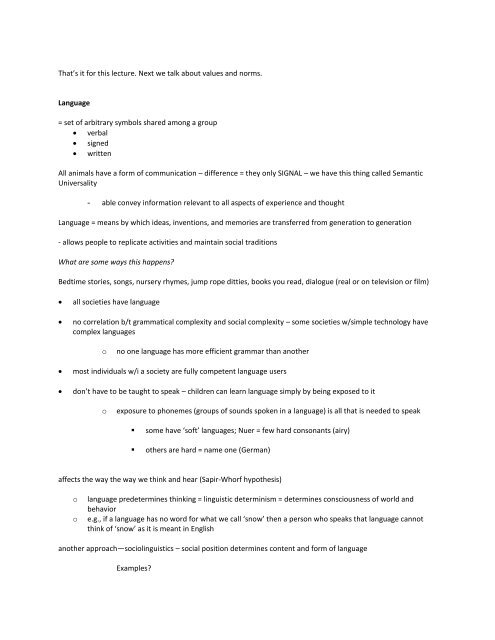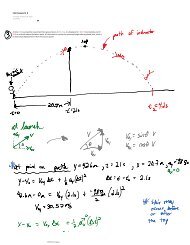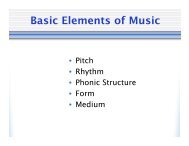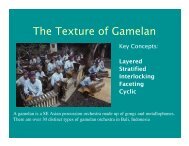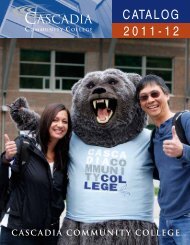Culture We can think about culture a couple of different ways: Big C ...
Culture We can think about culture a couple of different ways: Big C ...
Culture We can think about culture a couple of different ways: Big C ...
Create successful ePaper yourself
Turn your PDF publications into a flip-book with our unique Google optimized e-Paper software.
That’s it for this lecture. Next we talk <strong>about</strong> values and norms.<br />
Language<br />
= set <strong>of</strong> arbitrary symbols shared among a group<br />
verbal<br />
signed<br />
written<br />
All animals have a form <strong>of</strong> communication – difference = they only SIGNAL – we have this thing called Semantic<br />
Universality<br />
- able convey information relevant to all aspects <strong>of</strong> experience and thought<br />
Language = means by which ideas, inventions, and memories are transferred from generation to generation<br />
- allows people to replicate activities and maintain social traditions<br />
What are some <strong>ways</strong> this happens<br />
Bedtime stories, songs, nursery rhymes, jump rope ditties, books you read, dialogue (real or on television or film)<br />
<br />
<br />
all societies have language<br />
no correlation b/t grammatical complexity and social complexity – some societies w/simple technology have<br />
complex languages<br />
o<br />
no one language has more efficient grammar than another<br />
<br />
<br />
most individuals w/i a society are fully competent language users<br />
don’t have to be taught to speak – children <strong>can</strong> learn language simply by being exposed to it<br />
o<br />
exposure to phonemes (groups <strong>of</strong> sounds spoken in a language) is all that is needed to speak<br />
• some have ‘s<strong>of</strong>t’ languages; Nuer = few hard consonants (airy)<br />
• others are hard = name one (German)<br />
affects the way the way we <strong>think</strong> and hear (Sapir-Whorf hypothesis)<br />
o<br />
o<br />
language predetermines <strong>think</strong>ing = linguistic determinism = determines consciousness <strong>of</strong> world and<br />
behavior<br />
e.g., if a language has no word for what we call ‘snow’ then a person who speaks that language <strong>can</strong>not<br />
<strong>think</strong> <strong>of</strong> ‘snow’ as it is meant in English<br />
another approach—sociolinguistics – social position determines content and form <strong>of</strong> language<br />
Examples


